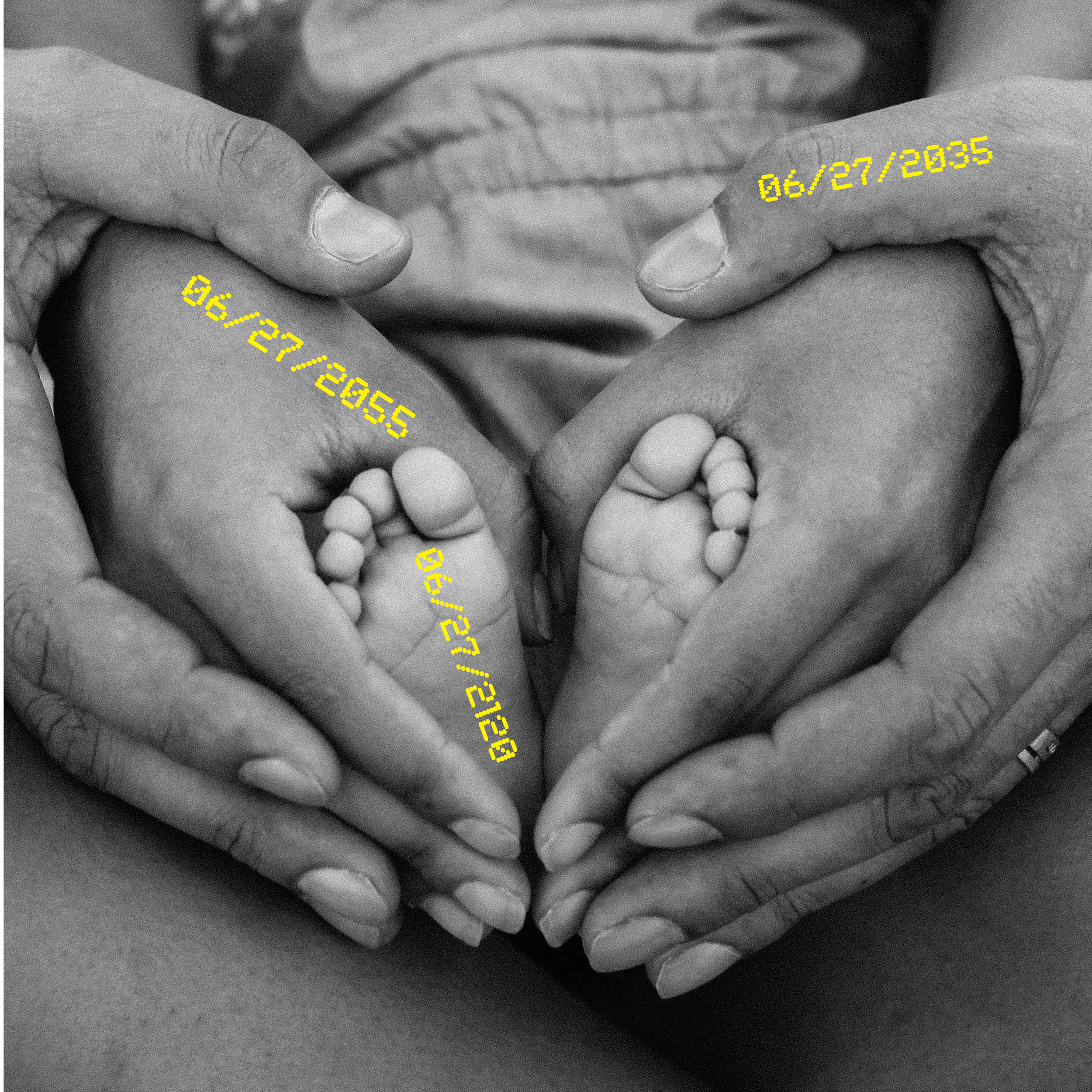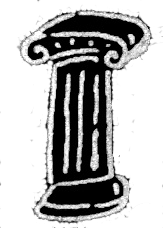
MY EXPIRATION DATE
As I approach old age, at its extremity—beyond 80—an expiration date emerges like an overlooked stamp, a smudged date not yet quite readable but definitely imprinted and waiting to be seen, ready to deactivate or to render not useable at the end of a long extended life. Does knowing that expiration date will soon be visible and thereby tending to accelerate the fewer and fewer days or months or even years remaining? It seems as if I am being rushed by an overworked executioner trying to meet his deadline.

SPLIT PERSONALITY
On an ordinary day, when I was clinical director of a psychiatric day hospital,
I saw the door open and was stunned to see Angie walk in, her eyes blazing, her pale thin lips covered in bright red lipstick, her head held high and straight, her gait wide and strong. Angie had transformed overnight from the shy, shoulder-slumped, whispery-voiced, mousey young woman who seemed so much younger. Today she was a different person, loud, gregarious, assertive, very social, and unaware of the change. We had warnings, vitriolic damning postcards that began arriving anonymously but signed in the same red lipstick. Angie, we quickly came to realize, was a multiple personality.

REAL SELF, FALSE SELF
When did you first know, or realize, or became conscious of your self, your sense of yourself? For me that realization began with others’ description of me. My parents and relatives would often address me with little descriptive tags: cute, smart, quiet, shy, quick, good (obedient)… Such little feedback remarks I believe began to form a nidus of awareness that set up a reference, an internal informative pattern about who and what I was, that I was a person. That feedback was of course enhanced by their behavior toward me, forming boundaries of inclusion or exclusion, conveying attitudes of affection or disapproval. Soon a self forms surely informed by the acquired responses to others, to what they conveyed about me. But also a germinating self had been forming based on genomic and epigenetic factors, an incipient germ of character, of personality.

NOSTALGIA
I recently came back from a nostalgia trip that was filled with memories, some vividly pictorial, some distinctly emotional like a very specific scent. It was a return to the city of my childhood, up to adolescence, a visit organized for the sole purpose to re-acquaint myself with the friends and family I since have known only from letters, emails, texts, and Facebook postings.

FAILURE
Whenever I fail, and it’s been frequent though only rarely fatal, I try to think of Thomas Edison’s adage: "I haven't failed. I've just found 10,000 ways that won't work." But failure covers a lot of ground, from the utterly abject to the totally trivial, from targeted actions to things of the heart, from mental states such as hope to physical responses such as falling. Google generates dozens of failure analyses for organizations and even societies.

PAIN
Who has never experienced pain? And who does not live in fear of yet another bout? Yet pain does not exist as an emotional memory. Even when embedded in traumatic experience, the panic, anxiety, flashbacks, and depression are frames around an absence. At the center, resisting any effort to re-experience, is pain. It leaves a broad stain, a knowledge, a fact that has no sensation, no experiential core. Until it returns.

SURVIVING
In 1907 Fritz Haber, a German Jewish chemist, saved the world from sustained global hunger by inventing a method for extracting nitrogen from the air, nitrogen being the key ingredient in fertilizer, which before this invention had countries madly grinding every skeleton they could unearth to extract nitrogen from bones. Haber won the Nobel Prize for this stupendous achievement, but he also invented the deadly chlorine gas used in World War I. That gas was so horrible that chemical warfare has been universally banned from all future conflict. Haber went on to develop Zyklon, the powerful insecticide that became the gas used with extraordinary expedience in Nazi gas chambers. He did not emotionally survive those last inventions.

HAPPINESS is…
Aristotle declared that happiness is composed of two aspects: hedonia (pleasure) and eudaimonia (a life well lived). Is that it? Is that all?
Now in this post-enlightenment, post-modern, science-based time, we think that the brain is somehow wired for producing or somehow creating the complex state of happiness. We want answers, evidence-based answers about what is going on with us humans. What is happiness, surely one of the most important emotional, social, philosophical states of our existence. So, what is happiness, the emotion and the real science of it?

JEALOUSY
I thought that everyone knew the difference between envy and jealousy. Until I felt the first pangs of jealousy. Seventh grade and Danny M was admired, adored and revered by Anita S, the glamour queen of class A7. While I stood to the side, short, skinny, wire-haired, and shy.
The green monster it is called, this thing that takes hold like a demon and will not let you go, at least, in my case, not for a good part of the school year. So why are we equipped with this ever-possible green monster. Why is it a universal emotion lying like a dragon sleeping in its cove, ready to trounce when provoked.

HOW TO TALK TO AN ELEVATOR
As a small child I was fascinated by the lever that controlled the manual elevator of that era. A uniformed matron would expertly drive the elevator car, manipulating that lever with a gloved hand. I marveled at the elegance of her ability, by merely flicking the lever quickly back and forth, to deliver the car to its perfectly level position at any designated floor. I practiced being an elevator operator on the window handle in the back seat of my dad’s Buick.

LONGING
I spent years of my middle childhood yearning for a toy train set and never got one. Yearning is for something; longing is for someone. Or perhaps they are equivalent, interchangeable.
Longing functions to maintain social relationships over time, which means that there has to be some motivation to be with that person when you are separated. There is a neural explanation for that: the state of longing for someone activates the reward center in the brain, the same area (called the nucleus accumbens) that lights up during heroin or cocaine use. Thus longing is itself a reward albeit a melancholic one. And that reward center activates during the process of reunion with the one longed for.

LIES, WHY & WHEREFORE
The first lie I can remember telling, when I was six, was a fake medical-symptom: l cried to my mother that my stomach hurt too much to go to school. Which implied that I should stay home and play with the-toys that stood at-the-ready on my only one bedroom shelf. l think that counts as a real lie not a white lie because it was self-serving, not protective of another.

BEING LONELY
Old age is winnowing away my cadre of friends. This phenomenon is, of course, mundane. Everyone dies eventually, but friends die, or so it seems, to deprive me of their presence in my life. And as I proceed toward my inevitability these droppings-off feel increasingly more than abandonment but like an insensitive shirking-off, a leave-taking without a propitiative goodbye. I cannot shout “don’t leave me” to a dead friend, but I want to. I didn’t want them to take that journey, the one with no return.

TREADING WATER
I first crossed an ocean, the Atlantic, when I was fifteen. Feeling the water beneath me, its depth and breadth so immense, I was overjoyed, even euphoric, but also terrified. I was not afraid that the boat might sink; it was clearly staunchly seaworthy. What I felt seemed like life changing, inalterable—a great adventure into a greater unknown. Nothing to do with my destination, which was fixed and assured.

EARTH SHAKING
I first experienced an earthquake standing in my quonset-hut-lie house in California. There was suddenly a loss of the total balance, a subsidence of the ground beneath my feet, a rapid hard trembling of everything in every direction. It felt as though the world around me had dived into a swoon. And then it was over.

WHY DO WE GRIEVE?
At my grandmother’s funeral, when I was eleven, I had a sudden spasm of uncontrollable laughter. I had a sudden spasm of uncontrollable laughter. She was eighty-six years old and until I was ten she lived with my parents, my sister and me. Always difficult, critical and disapproving in her silent, gesture-driven way of communicating, my grandmother must have suffered all the years I knew her and many years before. But at her funeral I had only the memory of her as a crone.

HAVE A HAPPY BIRTHDAY
My birthday, falling near the end of summer, was ruined throughout my childhood. I thought it was because none of my young peers were around, either away at summer camp or at their parents’ lakeside cottage, or, like me, languishing under summer doldrums.
As time passes, speeding up as age slows us down, my birthday, like that of many others, came to accrue a panoply of signification and resonances. I have become increasingly aware that another birthday will begin emerging as the months peel by like the pages of a fast-forwarding movie calendar. Of course the birthday is marked with its age, a tattered valentine no one really wants to receive.

OUR BODY IS A QUESTION
I first came upon another person’s naked body in the autopsy theater of Stanford Medical School. We were a group of four first year med students. Over the next many months that body would be ours to know as we could never know another. But it was lifeless. It lacked the quintessence of a human body alive, moving, and aware.

WHY HAVE FRIENDS
What is a friend, anyway? Unlike the Inuit and Yupik peoples with their many words for different kinds of snow, we have only four loosely defined categories of friendship: intimate friends, close friends, casual friends, and acquaintances. And there is also the ex-friend. The categorical distinctions are arbitrary and fluid. A casual friend today could become an intimate friend tomorrow or even an ex-friend on the same day. So, what are friends and why do we have them?
